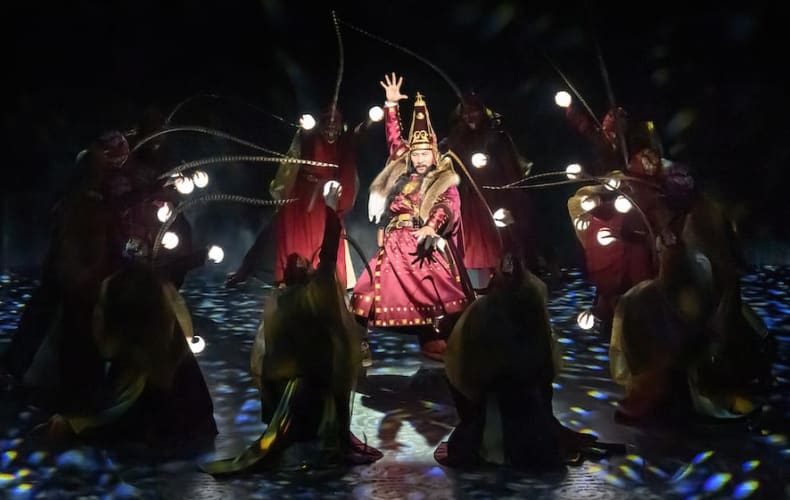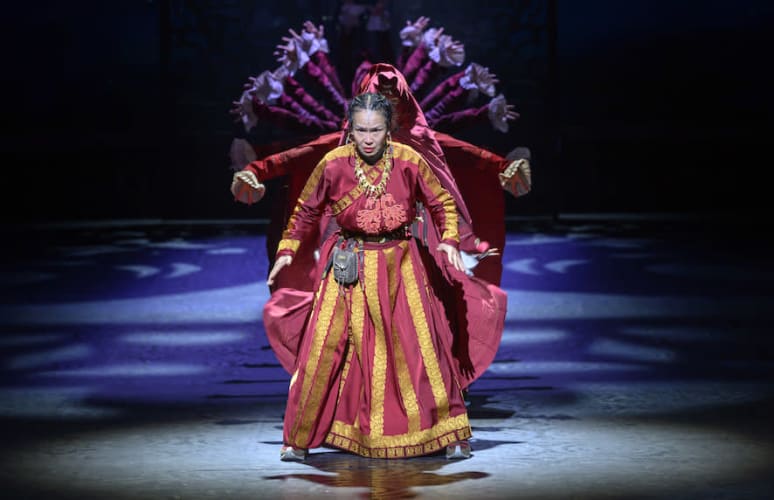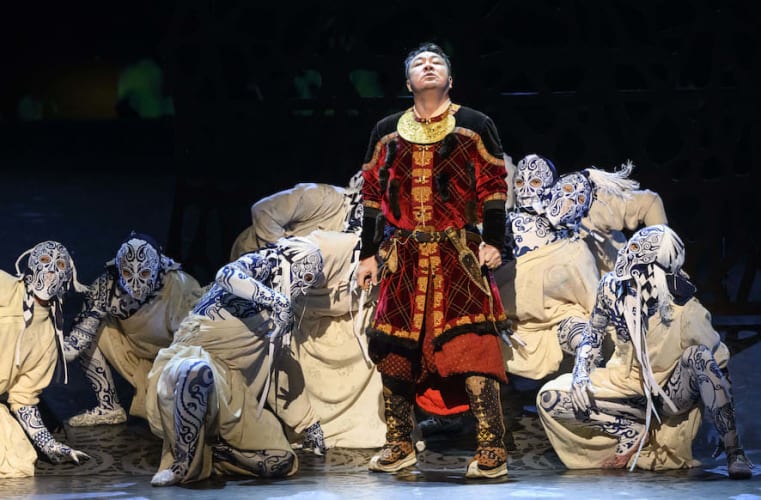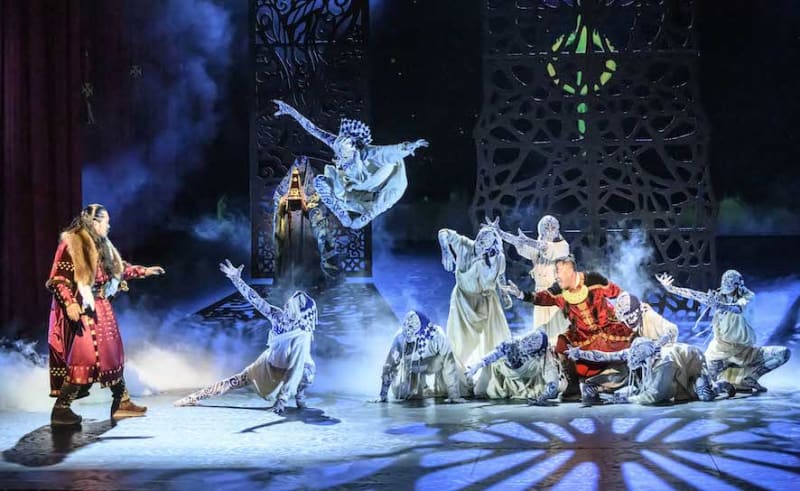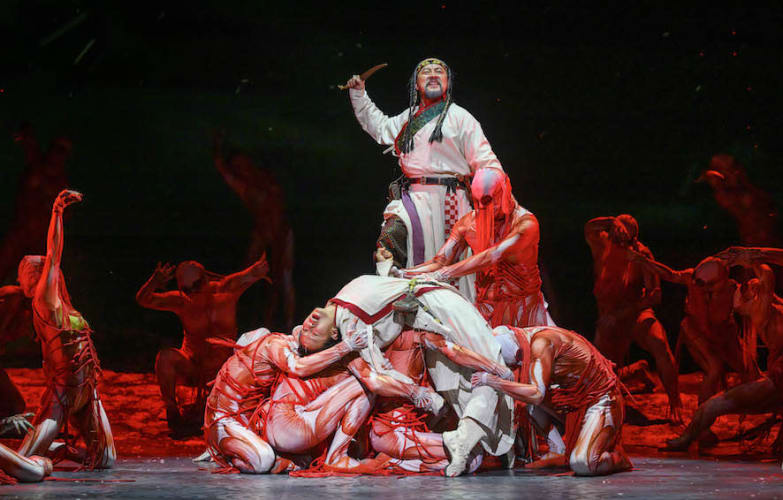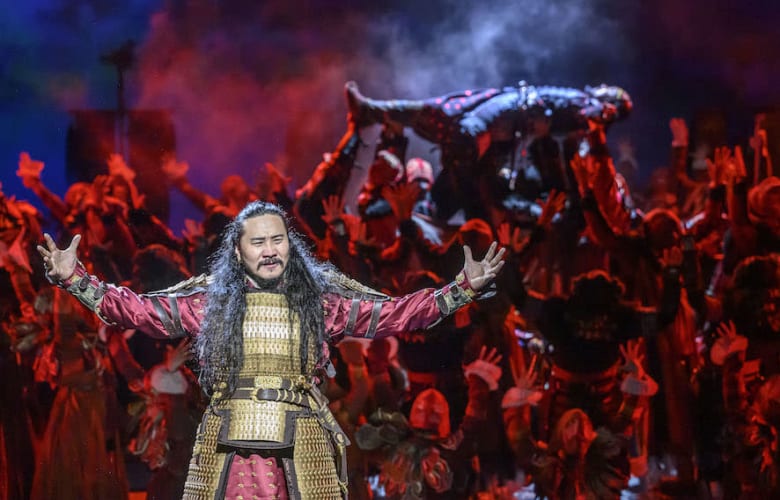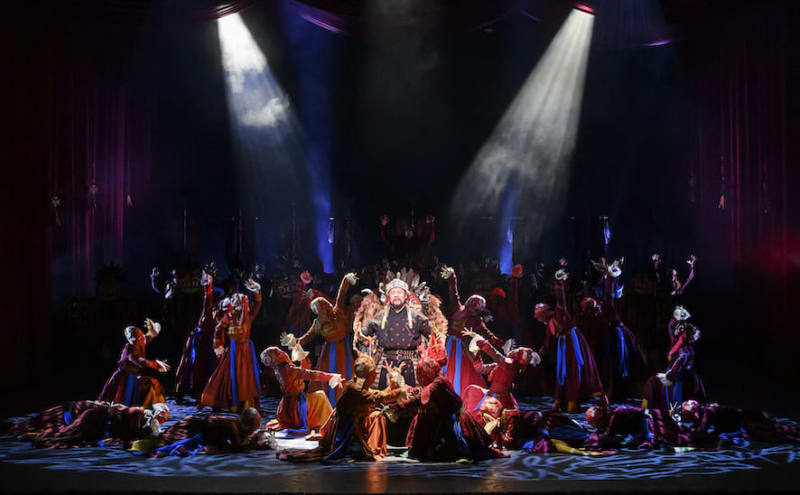The Mongol Khan is an adaptation of The State Without a Seal, a three act tragedy by the “Peoples Writer of Mongolia“ Lkhsvasuren Bavuu (1944–2019) set more than 2,000 years ago at the time of the nomadic Hunnu Empire when the fictional Archug Khan (Erdenebileg Gambold) in repaid succession finds himself the father of sons by both his Queen Tseter (Uranchimeg Urtnasan) and Queen Consort Gerel (Dulguun Odkhuu), which seems surprising since, as Timberlake Wertenbaker’s surely tongue-in-cheek English subtitles has him say, “for twenty years I have not spilled my seed inside her”.
In fact, as the audience soon learn, that boy’s father is actually his Chancellor, Egereg (Bold-Erdene Sugar), who, when Archug names the Consort’s child as his heir, is determined to change the royal line into one of his blood and makes the Queen swap the babies in their cradles.
When the princes are grown up, there’s a confrontation between the designated heir and his father, and the protagonists become involved in a succession of executions and outright war.
The Mongol Khan is offered as an introduction to Mongolian history and culture. It doesn’t deliver real history, but its costumes and choreography are claimed to be influenced by archeological discoveries and traditional forms with the Biyelgge circle dance a prominent feature and their effect is vibrantly theatrical. On press night, with mounted archers patrolling St Martin’s Lane and attendants in national dress stationed in the foyers, there was a chance to see the real thing close up.
With lines of up to 70 dancers snaking down from the raked rear stage, wildly circling or filling the scene vigorously fighting, it is a production that makes a strong statement. Its actors, at the centre of gyrating courtiers and subjects or straight out to the audience, match the Coliseum’s scale with sonorous voices and grandiloquent gestures, and even intimate exchanges are echoed by the dancers who match every spoken word with a movement or quiver and gesticulate to match the characters feelings.
Bloody action, whether murder or sacrifice, is accompanied by a chorus in red-slashed body suit and bathed in red light. As the villainous chancellor is about to kill the Queen, he halts for a moment remembering “the nipples I used to stroke” as lightning flashes, drums thunder and the dance erupts.
It is a very simple storyline that involves only the Chancellor, the Khan, his Queens and their two sons. The plight of the women seems truly tragic, but that aspect is not developed. Though we learn only what is necessary for the plot, director Hero Baatar and choreographers Bayarbaatar Davaasuren and Khashkhuu Khatankhuyag know how to conjure powerful theatricality. Early on, there are dances for the two foxes that are spirits to protect the young princes; the boys grow to manhood in a fluid sequence where they emerge from the skirts of voluminous figures, disappearing back to be replaced by slightly older versions; there is a dazzling dragon to trample the wicked, violence becomes ritualistic and ritual mesmerising.
Though the first half moves far too slowly and seems repetitive, more seems to happen after the interval as great moons looms in the sky and the Khan is faced with having no heir. The scale of the staging, dramatic lighting, a score full of drums, gongs, bells, shrill whistles, throat singing and traditional string instruments and the perfectly drilled dancers come together very effectively. What a pity there isn’t more real content.
